10 Side Effects Of Eating A Lot Of Tomatoes
Discover the dark side of these tasty, tangy treats when they are consumed in excess.

Image: Midjourney/ StyleCraze Design Team
Many of us consume tomatoes regularly. These are added to many dishes for the unique flavor they impart. They are packed with nutrients and contain Lycopene known for its health benefits (1). But are you aware of the side effects of tomatoes?

These may not be suitable for everyone, and not all can consume them in regular amounts. So, understanding the potential side effects of tomatoes is important for safe consumption. In this article, you will understand the different ways tomatoes may impact your health negatively. Continue reading to know more.
 Know The Flip Side: Tomatoes
Know The Flip Side: TomatoesShort-Term Effects
Acid reflux, vomiting, headache, and can trigger skin allergies.
Long-Term Effects
Aggravate kidney and urinary problems.
Drug Interactions
May interfere with blood pressure-lowering and blood-thinning medications.
When To See A Doctor
Excessive consumption may exacerbate GERD (gastroesophageal reflux disease) or digestive stress.
In This Article
10 Serious Side Effects Of Tomatoes
Key Takeaways
- The lycopene in tomatoes may increase the risk of bleeding and interact with blood-thinning medications.
- The histamine present in tomatoes may cause symptoms like hives, eczema, and itching.
- Excess consumption of tomatoes may cause orange skin discoloration called lycopenodermia.
- Daily consumption of a small tomato or 75 mg of lycopene is considered safe.
Tomatoes – A Brief
Scientifically called Solanum lycopersicum, the tomato belongs to the nightshade family of Solanaceae. Tomatoes originated in the Central and South Americas. In Mexico, they were first used in food, and eventually spread throughout the world.
Today, the tomato is consumed in a variety of ways – raw, cooked, and as an ingredient in numerous dishes, sauces, drinks, and salads.
 Trivia
TriviaBut now comes the big question –
Why Can Tomatoes Be Bad For You?
Though they are usually safe for consumption, they can cause complications in some people. Some of the issues tomatoes can cause include acid reflux, effects of intolerance, muscle aches, etc.
Even the leaf of the tomato plant can be unsafe. In large amounts, it can cause vomiting, dizziness, nausea, headache, and, in severe cases, even death (2).
Another major factor contributing to this dark side of tomatoes is lycopene, the very compound that, quite surprisingly, is responsible for its benefits as well.
Lycopene In Tomatoes
Lycopene is safe in most cases. But lycopene supplements may not be safe during pregnancy. Lycopene can also aggravate the symptoms of prostate cancer.
Lycopene must be used cautiously in patients who have stomach ulcers and other stomach issues. The compound can also cause low blood pressure. Individuals on blood pressure lowering medication must stay away from lycopene.
Lycopene can also increase the risk of bleeding and must be avoided by people with bleeding disorders.
Other side effects of excess lycopene intake include lycopenenemia, a condition causing yellow-orange pigmentation of the skin. The study, published in the journal Evidence-Based Complementary and Alternative Medicine, explored the toxicity levels of tomato leaf methanolic extracts, a botanical known for its promising in vitro anticancer potential. It was conducted in accordance with OECD guidelines. The research assessed both acute and subacute oral toxicity in rats. A single dose of 5000 mg/kg showed no signs of acute toxicity, indicating a high safety margin. However, prolonged use at the highest dose (1000 mg/kg) caused increased urea levels and total serum proteins, suggesting potential toxicity risks. No significant histopathological changes were observed across treatment groups. The findings highlight that while lower doses (250–500 mg/kg)of lycopene are safe for long-term use, caution should be exercised with higher doses (1).
And now, for the side effects, in detail.
Side Effects Of Tomatoes
1. Acid Reflux/Heartburn

Tomatoes are acidic, and they might cause heartburn. Tomatoes are packed with malic and citric acids and can make the stomach produce excessive gastric acid (which is responsible for food breakdown) (3). When the volume of the acid increases, it is forced to flow up the esophagus, causing the symptoms. In fact, even cooking tomatoes may not be of much help.
Tomatoes and tomato sauce are also listed as a couple of foods that may trigger a reflux (4).
Tomatoes may also worsen the symptoms of GERD (gastroesophageal reflux disease)i A digestive condition in which stomach acid frequently flows back into the food pipe and irritates the lining. (5). Hence, it is best to avoid acidic foods like tomatoes to avoid acid reflux symptoms.
 Did You Know?
Did You Know?2. Allergies And Infections
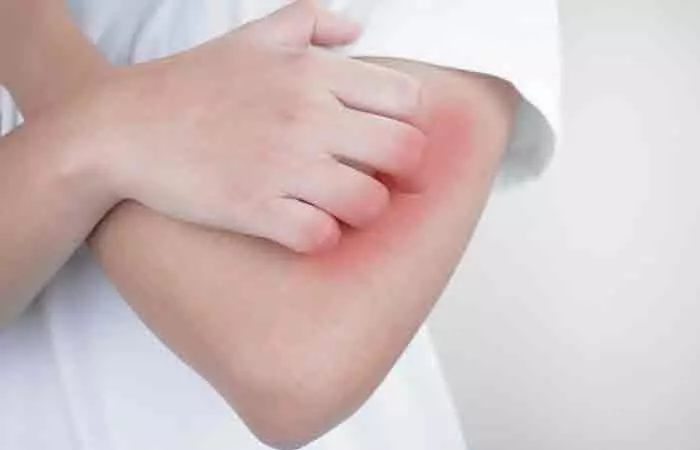
Symptoms of a tomato allergy most often occur immediately after the fruit is consumed. These include hives, skin irritation, rashes, eczemai A common and chronic skin condition that causes dryness, irritation, inflammation, and red rashes on the skin. , coughing, sneezing, an itching sensation in the throat, and swelling of the face, mouth, and tongue.
Roselea, a blogger, describes her experience when she suspected an allergic reaction her daughter had to tomatoes, “While nursing her, I noticed her face getting red and blotchy. By the time she woke up, it looked awful: red with white puffy places all over her face (i).” She later found that it may have been cinnamon in combination with tomato that caused the reaction, but it goes on to show that tomato allergy can manifest itself even with other ingredients.
According to a Polish study, tomatoes contain a compound called histamine that may cause certain allergic reactions and inflammation (6).
Tomatoes can also cause allergic contact dermatitisi A skin condition where you experience skin rashes and irritation after coming in contact with an irritant or allergen. – where your skin becomes severely itchy and swollen after touching the fruit. Tomatoes can also lead to itchy lips. Another possible allergic reaction to do with tomatoes is a red patch around the eyebrows and eyelids (7).
3. Kidney Problems

According to a report published by the U.S. Department of Health and Human Services, individuals with advanced chronic kidney disease must limit their intake of potassium, a mineral tomatoes are rich in (8).
People with severe kidney issues may also be required to limit their intake of tomatoes as they contain a lot of water.
High potassium levels in the blood, which is one of the causes of kidney disease, could be dealt with by avoiding tomatoes or tomato sauce or anything made of tomatoes. Tomato sauce is also high in oxalate, which is another reason susceptible individuals must steer clear of it (9).
4. Irritable Bowel Syndrome
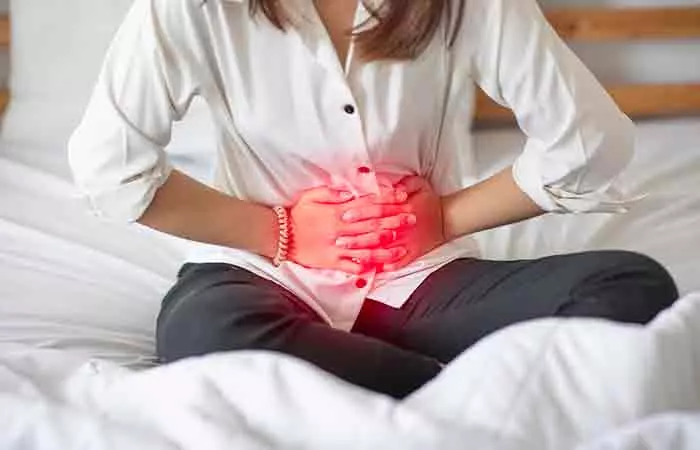
Tomatoes, given their irritating skins and seeds, may be one reason for irritable bowel syndrome. And if you already have IBS, tomatoes can also trigger bloating.
Tomatoes are also one of the most common food allergens that may cause intestinal problems. A study, published in the Journal of Investigational Allergology and Clinical Immunology, looks at tomato allergy and how well current tests work to diagnose it. Researchers studied 96 adults with plant food allergies and found that 33% had a confirmed tomato allergy based on their history and skin prick tests (SPT) with fresh tomatoes. Different proteins, like PR-10, profilin, and lipid transfer proteins (LTP), were found to trigger the allergy, with profilin being strongly linked to tomato allergy. The study shows that using more detailed tests to identify specific proteins can help better understand and diagnose tomato allergies (10).
5. Diarrhea

Diarrhea can occur in individuals suffering from tomato intolerance.
Tomatoes are greasy and acidic and must be avoided during diarrhea. They could be a source of an organism called salmonella that causes diarrhea (11).
6. Excessive Sodium
Ensure you choose lower sodium versions of tomato sauce as most sauces have a high sodium content.
Even tomato soup can have too much of sodium. Just one cup of the soup can contain anywhere between 700 to 1,260 mg of sodium (12). While tomato soup benefits are plenty, it’s better to stick to homemade tomato soups over packaged ones. And even if you are buying packaged or processed tomato soups, opt for low-sodium options. Canned tomatoes can contain 220 mg of sodium for every half cup.
7. Lycopenodermia
We know tomatoes are excellent sources of lycopene. This can also be a bane. Excessive intake of lycopene can cause lycopenodermia, which is the deep-orange coloration of the skin. This may not be a health threat, but is surely not very attractive to look at (13).
Lycopenodermia can also occur with excessive consumption of lycopene supplements. But worry not – the condition is reversible (14).
8. Urinary Problems
Acidic foods like tomatoes may irritate the bladder and result in urinary incontinence. Tomatoes may also cause bladder symptoms, and in certain cases, cystitis (burning sensation in the bladder).
9. Respiratory Problems
People allergic to tomatoes may have difficulty in breathing.
We can also accuse tomatoes of being conducive to mold development – and molds, according to the United States Department of Agriculture, can cause allergies and respiratory problems (15).
10. Acute Gastrointestinal Upset
Since tomatoes are highly acidic, they may cause acute stomach discomfort if you are already suffering from acid reflux or heartburn.
Tomatoes can also make the stomach produce more acid, which may cause acute gastrointestinal upset (6).
11. Lower Blood Sugar Levels
Consuming tomatoes may not be advisable for those with low blood sugar level (hypoglycemia) as they can reduce it to a dangerously low level. Tomatoes have been found to significantly lower fasting blood glucose (FBG) levels and enhance glucose tolerance. This is because of an increase in enzymes like AMP-activated protein kinase (T-AMPK), phosphorylated AMP-activated protein kinase (p-AMPK), insulin receptor substrate-1 (IRS-1), and glucokinase (GCK) in the liver that contribute to blood sugar reduction. In addition, tomato consumption also regulates the expression of phosphoenolpyruvate carboxykinase (PEPCK), further aiding the blood glucose-lowering effect (16). Hence, people with hypoglycemia need to be cautious while including tomatoes in their daily diet.
So, while tomatoes offer numerous health benefits, they may also lead to side effects like acid reflux, allergies, and diarrhea. You must consume them in moderation to prevent these side effects and avoid any other potential health issues. But that’s not all! There is another set of people that, in this aspect, must practice caution more than anybody else.
Pregnant And Breastfeeding Women
In regular amounts, tomatoes are found to be safe for pregnant and breastfeeding women. However, there is insufficient evidence when it comes to large amounts. The best way to go about it would be to consult your doctor.
Talking about lycopene in this context, there is no evidence. Hence, refrain from taking lycopene supplements (1).
Tomato, especially the sauce, has a strong flavor and can make its way into the breast milk. This can make the baby uncomfortable and irritable.
In case you have more questions…
These side effects don’t mean you chuck tomatoes right away. The benefits of tomatoes are numerous and they are worth including in your diet. What we say is be wary of the side effects, and don’t consume them in excess.
How Much Lycopene Is Safe?
Shavonne Morrison, MS, RD, says, “Lycopene is one type of carotenoid. One study suggests 75 mg per day of lycopene is safe. According to this study, fresh tomatoes contain anywhere from 0.88-7.74mg of lycopene per 100g, which is about 1 small tomato.”
So, limit your daily tomato intake to prevent issues such as digestive discomfort, and incorporate a variety of other fruits and vegetables into your diet for balanced nutrition. Here are some other tips to help you consume tomatoes safely:
- Opt for fresh, ripe tomatoes, as unripe ones may contain higher levels of solanine, which could cause gastrointestinal discomfort.
- Limit consumption of canned or processed tomato products, as they often contain added sugars, salts, and preservatives that may not be ideal for health.
- Eating tomatoes with healthy fats like olive oil enhances nutrient absorption, especially of fat-soluble vitamins like vitamin A and lycopene.
- Cooking tomatoes can reduce their acidity, making them gentler on sensitive stomachs.
- If you are consuming tomato-based products like ketchup or sauces, be mindful of their sodium content, especially if you have high blood pressure.
Infographic: Alternatives To Tomatoes
Though nutritious and beneficial, tomatoes can also cause serious side effects. Not everyone can consume tomatoes in equal amounts as they may cause acid reflux, muscle aches, or infections in a few. However, you can choose alternatives that may give your dishes the same flavor and color. Check out the infographic below to learn about the other tomato alternatives that you can use.
Some thing wrong with infographic shortcode. please verify shortcode syntax
Tomatoes are juicy fruits that contain antioxidants and several useful plant compounds. They offer many health benefits. However, excess intake of tomatoes may cause side effects like acid reflux or heartburn, allergies and infections, kidney problems, irritable bowel syndrome, diarrhea, urinary issues, and respiratory problems. There is limited evidence on the safety of tomatoes for pregnant and breastfeeding women. Hence, limit their consumption to avoid their adverse effects.
Tell us how this post has helped you. Do comment in the box below.
Frequently Asked Questions
Can lycopene cause constipation?
Shavonne Morrison says, “Lycopene and tomatoes, in general, are unlikely to cause constipation.”
Can tomatoes be toxic?
Tomatoes contain solanine, which is a toxic alkaloid. This alkaloid is a part of the plant’s defense mechanism to make the fruit look unappealing to animals. Though all parts of the plant contain solanine (including the fruit), the heaviest concentrations are in the leaves and stems. Hence, consuming tomatoes in normal amounts is not toxic.
Are tomato seeds poisonous?
Usually, no. But consult your doctor in this regard. Certain individuals are not allowed to have tomato seeds due to medical reasons.
What are green tomatoes?
Green tomatoes are of two types. One is the unripe red tomato, and the other is the heirloom variety of tomatoes that is originally green. Heirloom tomatoes have vertical stripes, are soft when pressed, and taste pretty much like the ripe red tomatoes. Unripe red tomatoes look green, feel harder, and have an acidic flavor.
Can tomatoes be eaten raw?
Yes. Just check the acidity. If you are suffering from acid reflux or any other gastrointestinal issue, raw tomatoes are not advised.
Is tomato leaf poisonous?
There is insufficient evidence regarding this. To be on the safe side, avoid consumption in large amounts. And consult your doctor.
Are canned tomatoes dangerous?
Yes, in the long run. In fact, any canned food is considered dangerous. This is because the inside of these cans is coated with Bisphenoli A chemical compound used to manufacture plastics that may cause oxidative stress, infertility and increased blood pressure. A or BPA, which can pose a health risk. Even otherwise, canned tomatoes are high in sodium, and that is not healthy.
Can tomatoes be applied to the face?
Yes. They benefit your skin in numerous ways – they tone your skin, improve the texture, and help in exfoliation. But again, the acidity is the problem. If you are allergic to tomatoes, don’t use them.
What is Crystal Tomato? Does it have side effects?
Crystal Tomato is a dietary supplement and food additive that contains natural tomatoes and L-cysteine (an amino acid). It is FDA approved. But it might cause side effects in people who are allergic to tomatoes.
Do sun-dried tomatoes have side effects?
The one major concern of sun-dried tomatoes is their link with hepatitis. Sun-dried tomatoes can cause severe liver harm, and this depends on the brand that is selling it. As of now, we don’t know which brand stands to be the culprit.
How many tomatoes can I eat in a day?
About 1/3 cup of tomatoes in a day. But this quantity is specific to the individual. Otherwise, 1/3 cup of tomatoes in a day should be fine.
What are tomatoes good for, if taken in moderation?
When taken in moderation, tomatoes strengthen your immune system, prevent blood clotting, reduce inflammation, lower cholesterol levels, and may help prevent strokes.
Illustration: Side Effects Of Eating A Lot Of Tomatoes
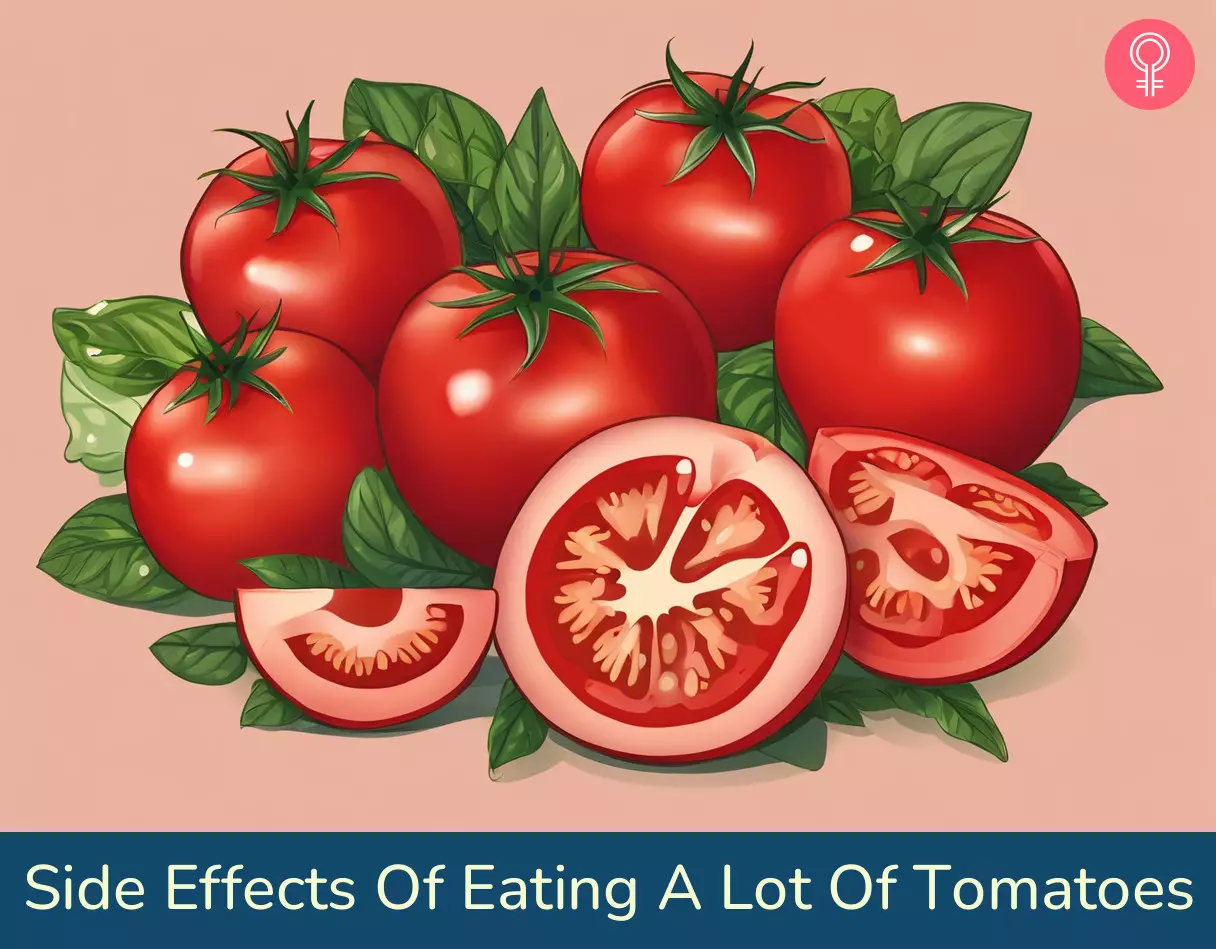
Image: Stable Diffusion/StyleCraze Design Team
Excess consumption of tomatoes can lead to health issues. Get to know about the 10 disadvantages of eating tomatoes in excess. Play this video now!
Personal Experience: Source
StyleCraze's articles are interwoven with authentic personal narratives that provide depth and resonance to our content. Below are the sources of the personal accounts referenced in this article.
i. Cinnamon and tomatoes?https://babyledweaners.livejournal.com/177416.html
References
Articles on StyleCraze are backed by verified information from peer-reviewed and academic research papers, reputed organizations, research institutions, and medical associations to ensure accuracy and relevance. Read our editorial policy to learn more.
- Lycopene: Food Sources Biological Activities and Human Health Benefits
https://www.ncbi.nlm.nih.gov/pmc/articles/PMC8626194/ - Acute and Subacute Toxicity Profiles of the Methanol Extract of Lycopersicon esculentum L. Leaves (Tomato) a Botanical with Promising In Vitro Anticancer Potential
https://www.ncbi.nlm.nih.gov/pmc/articles/PMC7077039/#B34 - Quantification of sugars and organic acids in tomato fruits
https://www.ncbi.nlm.nih.gov/pmc/articles/PMC6046607/ - Risk factors for gastroesophageal reflux disease: the role of diet
https://www.ncbi.nlm.nih.gov/pmc/articles/PMC4223119/ - Don’t eat tomatoes: patient’s self-reported experiences of causes of symptoms in gastro-oesophageal reflux disease
https://pubmed.ncbi.nlm.nih.gov/20406788/ - Histamine Intolerance: The Current State of the Art
https://www.ncbi.nlm.nih.gov/pmc/articles/PMC7463562/ - Severe tomato allergy (Lycopersicon esculentum)
https://pubmed.ncbi.nlm.nih.gov/12001794/ - Heart Disease & Kidney Disease
https://www.niddk.nih.gov/health-information/kidney-disease/heart-disease?dkrd=/health-information/kidney-disease/chronic-kidney-disease-ckd/heart-disease - Reduction of Oxalate Levels in Tomato Fruit and Consequent Metabolic Remodeling Following Overexpression of a Fungal Oxalate Decarboxylase
https://www.ncbi.nlm.nih.gov/pmc/articles/PMC3641215/ - Tomato allergy: clinical features and usefulness of current routinely available diagnostic methods
https://pubmed.ncbi.nlm.nih.gov/23653972/ - Outbreak of Salmonella Braenderup infections associated with Roma tomatoes northeastern United States 2004: a useful method for subtyping exposures in field investigations
https://www.ncbi.nlm.nih.gov/pmc/articles/PMC2870677/ - CAMPBELL’S Tomato Soup condensed
https://fdc.nal.usda.gov/fdc-app.html#/food-details/174547/nutrients - β-Carotene and Other Carotenoids
https://www.ncbi.nlm.nih.gov/books/NBK225469/ - Lycopene as a Natural Antioxidant Used to Prevent Human Health Disorders
https://www.ncbi.nlm.nih.gov/pmc/articles/PMC7464847/ - Molds on Food: Are They Dangerous?
https://www.fsis.usda.gov/food-safety/safe-food-handling-and-preparation/food-safety-basics/molds-food-are-they-dangerous - Hypoglycemic effects of esculeoside A are mediated via activation of AMPK and upregulation of IRS-1
https://www.ncbi.nlm.nih.gov/pmc/articles/PMC6582491/
Read full bio of Ionut Ignat
- Shavonne Morrison, MS, RD, LD, is a registered and licensed dietitian. She has a master’s degree in Nutrition Sciences from Texas Tech University and is passionate about helping women live their healthiest lives minus the stress.
 Shavonne Morrison, MS, RD, LD, is a registered and licensed dietitian. She has a master’s degree in Nutrition Sciences from Texas Tech University and is passionate about helping women live their healthiest lives minus the stress.
Shavonne Morrison, MS, RD, LD, is a registered and licensed dietitian. She has a master’s degree in Nutrition Sciences from Texas Tech University and is passionate about helping women live their healthiest lives minus the stress.
Read full bio of Ravi Teja Tadimalla
Read full bio of Arshiya Syeda
Read full bio of Aparna Mallampalli






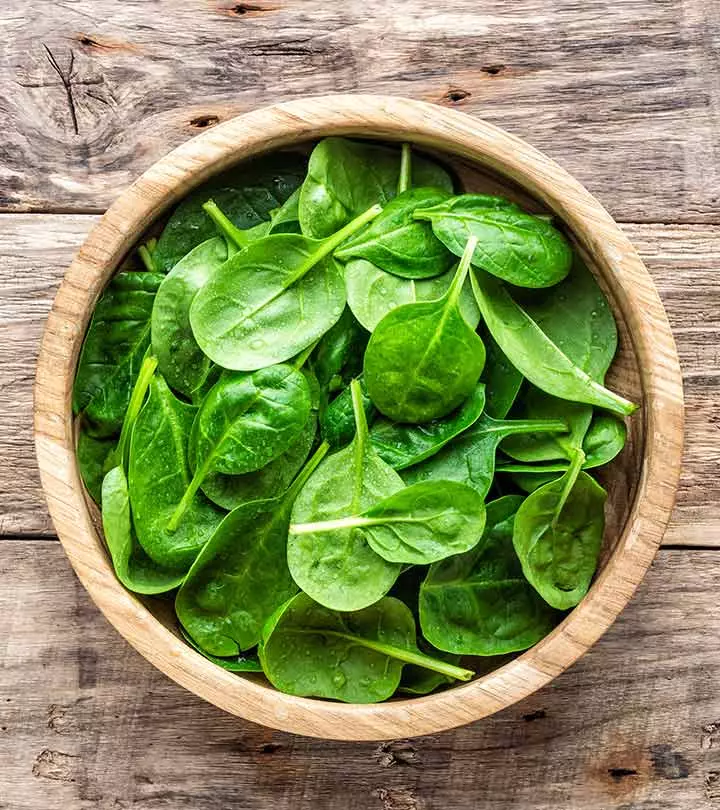




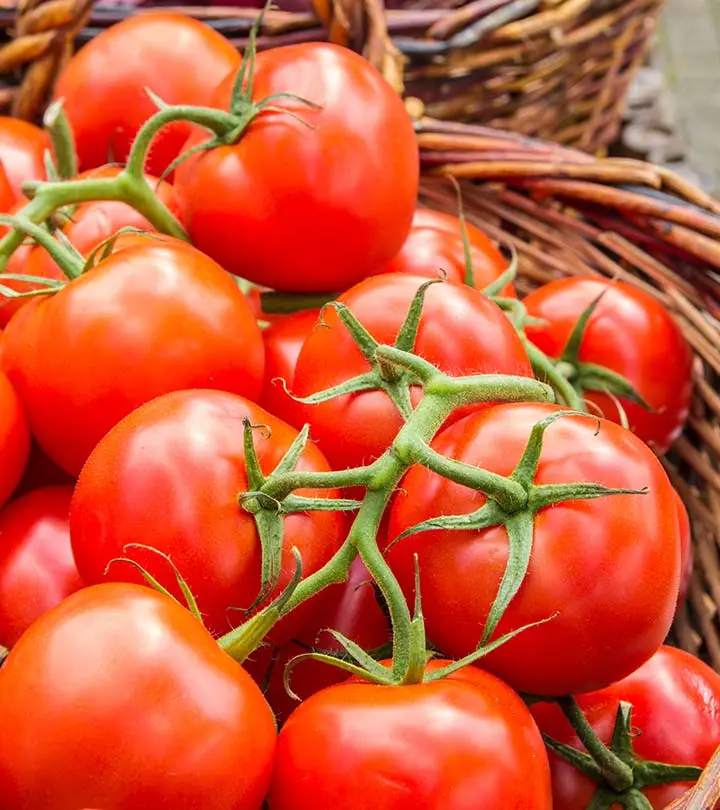

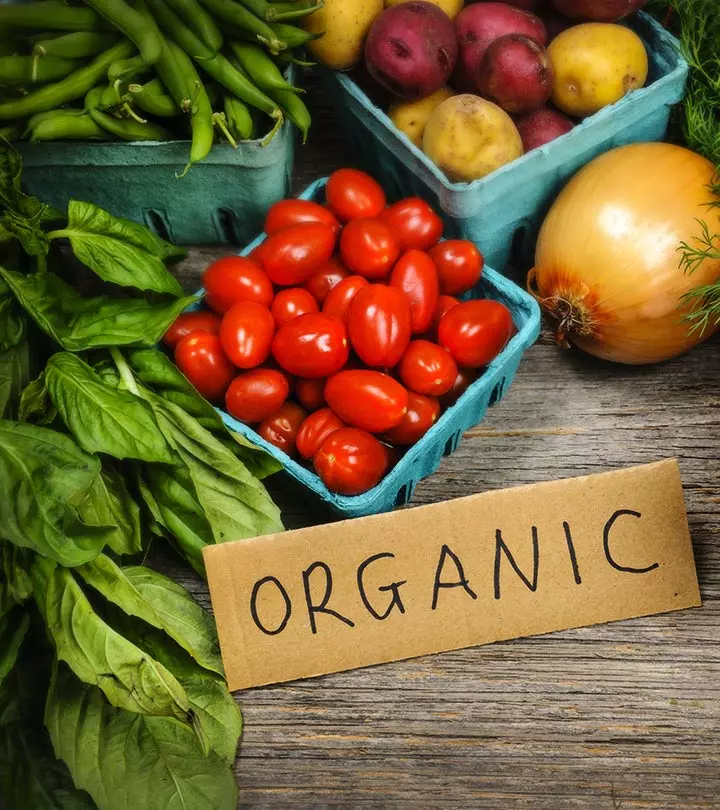
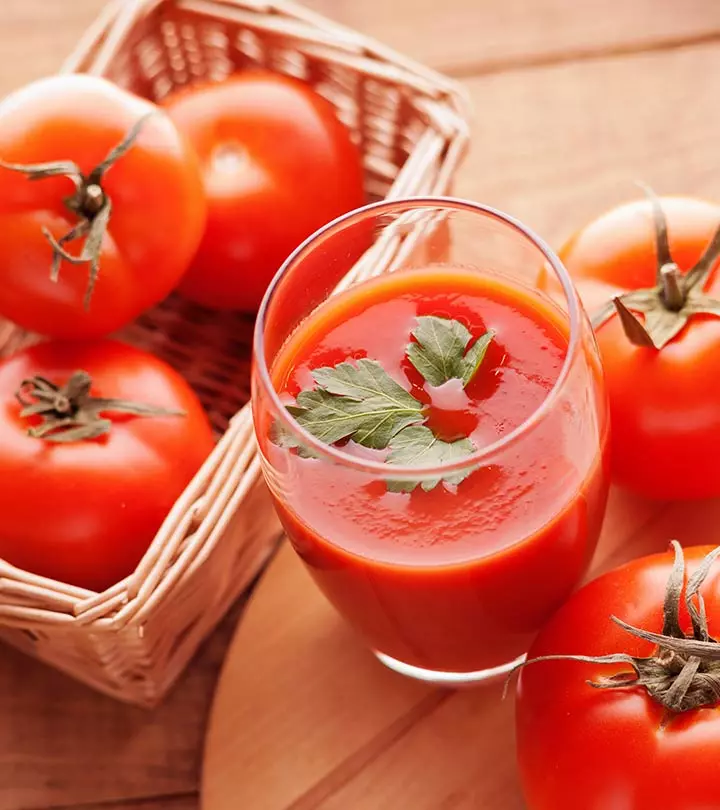





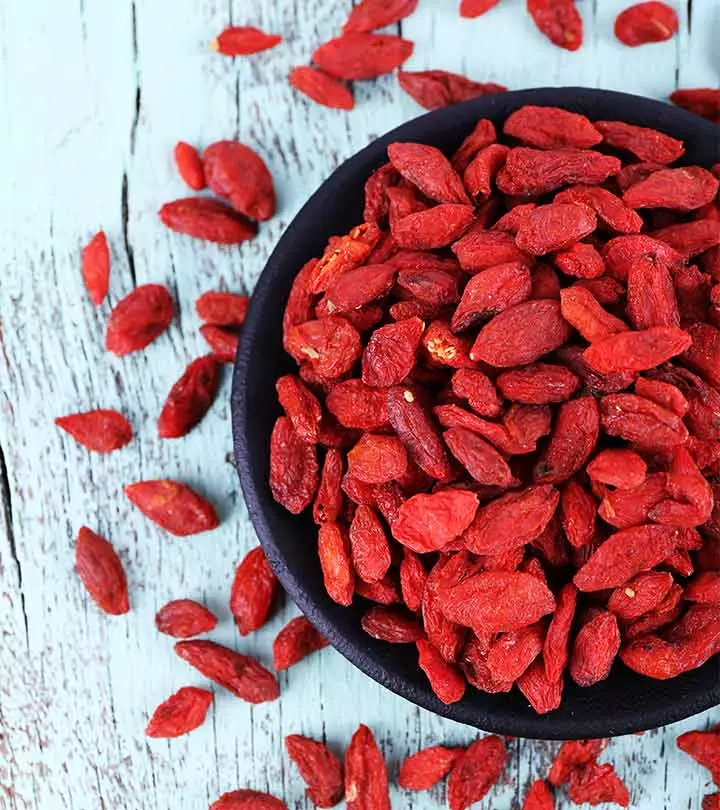
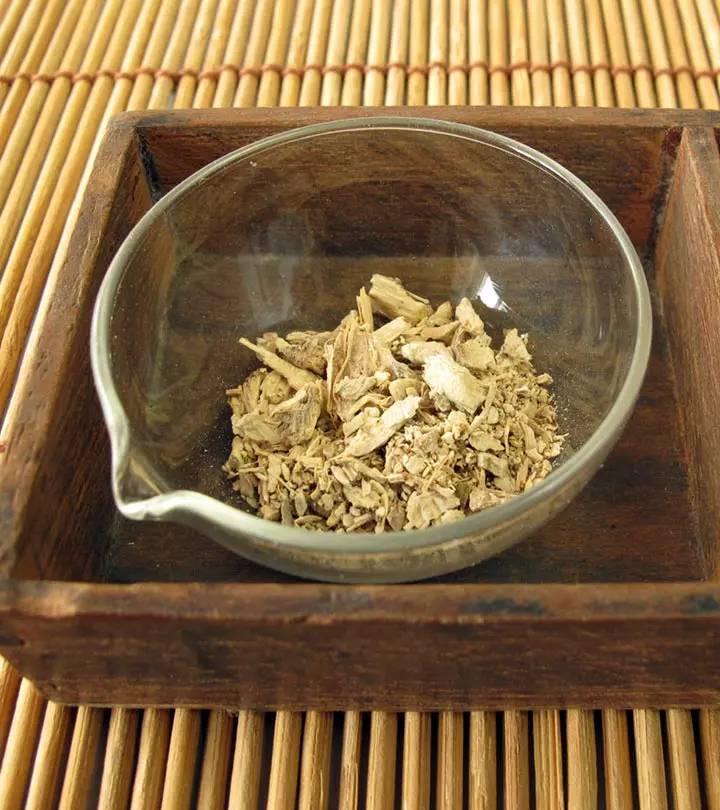

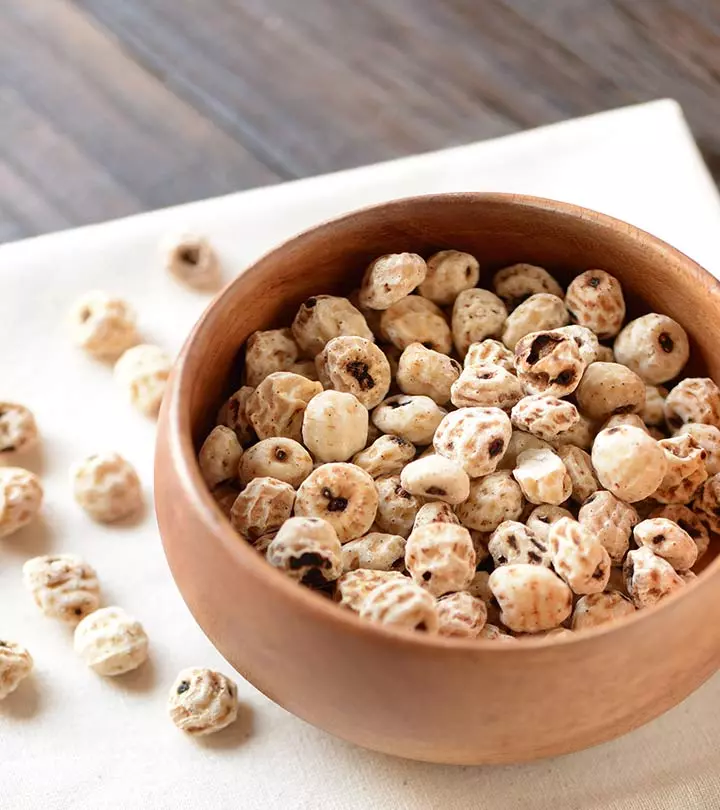
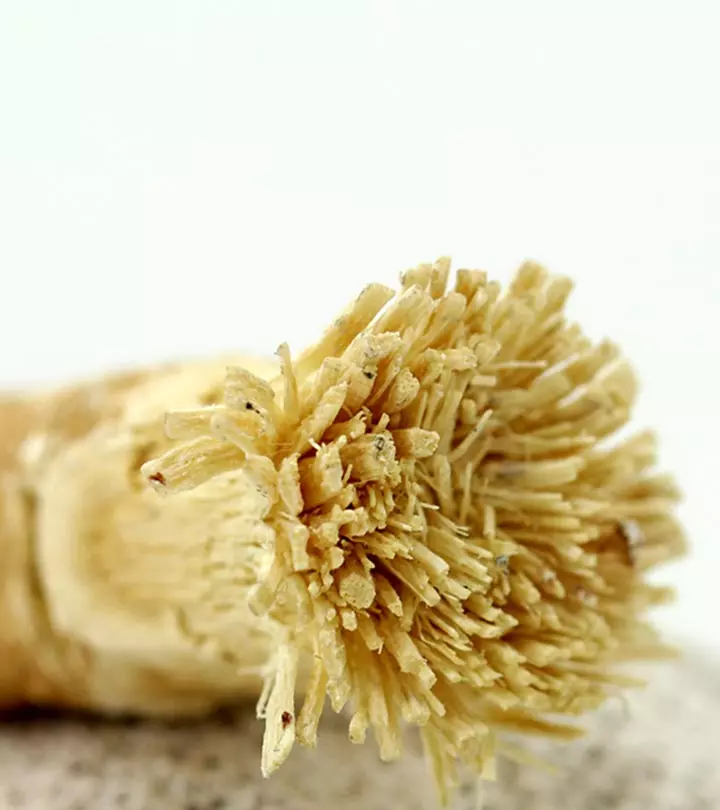
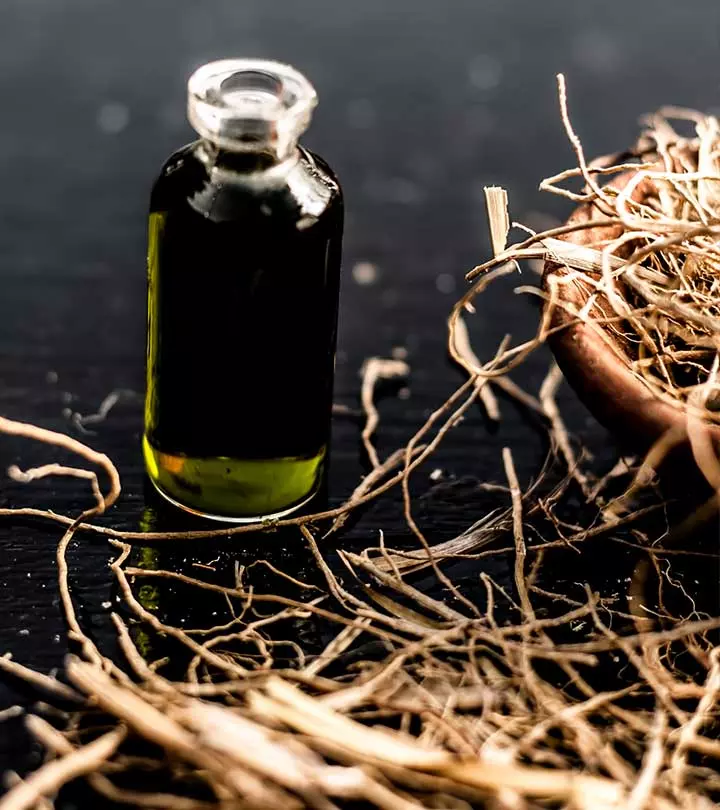
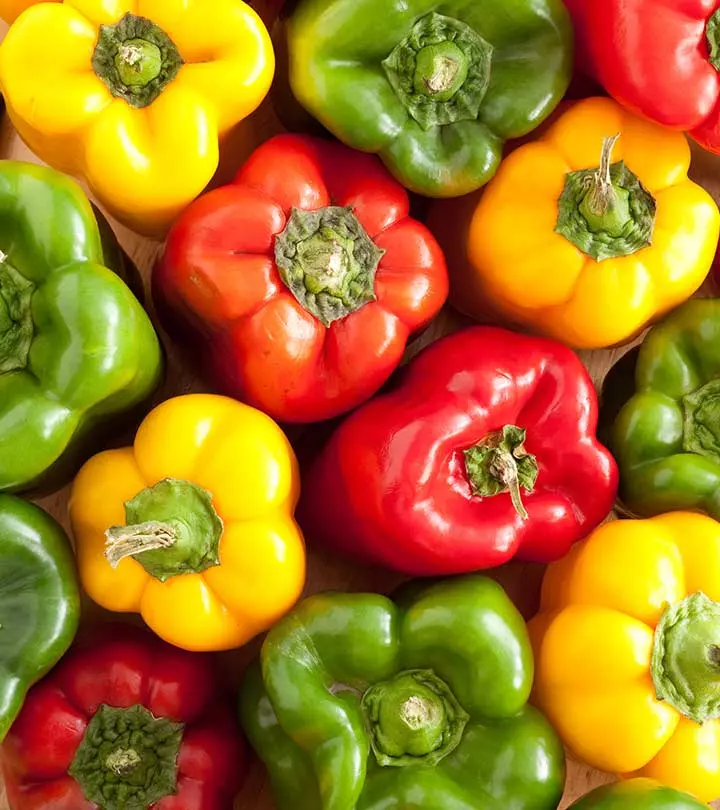
Community Experiences
Join the conversation and become a part of our empowering community! Share your stories, experiences, and insights to connect with other beauty, lifestyle, and health enthusiasts.